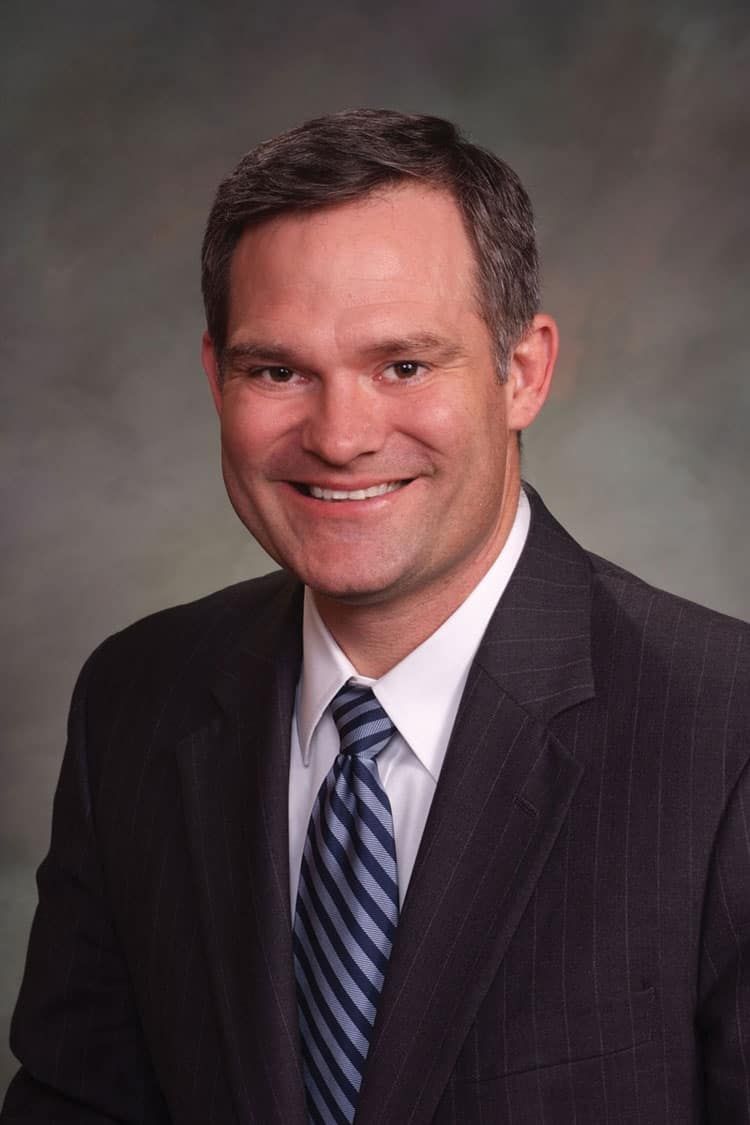Newsmaker Q&A: Foote bills take aim at oil, gas industry

Rep. Mike Foote, a Democrat from Longmont, introduced two new bills addressing his concerns with oil and gas drilling on March 18. House Bill 1267 would impose a mandatory minimum fine of $5,000 for drilling violations that have a significant adverse impact on public health, safety, welfare and the environment. If passed, it would also eliminate total maximum fines and raise the maximum daily fine from $1,000 to $15,000. The second, House Bill 1269, would prohibit members of the Colorado Oil and Gas Conservation Commission from working within the oil and gas-drilling industry during their commission term. We caught up with Foote to find out why he thinks his bills will be adopted when the environment and the economy seem at odds.
Question: Why is more state oil and gas regulation beneficial to Colorado?
Answer: My bills are not about more or less regulation. They are about effectively protecting the public while still allowing responsible drilling. The current fine schedule, for example, is not an effective deterrent to bad operators who calculate it is cheaper to cut corners than comply with existing protections. There is no use having rules in place if they can’t be effectively enforced, and the current fine schedule favors the bad operators over the good operators who do their work responsibly.
SPONSORED CONTENT
People Powered: Preparing Longmont Businesses for Economic Success
Longmont Chamber and FNBO present People Powered on April 24, 2024, aiming to inform business owners about workforce development, housing, and transportation issues.
Q: Copious regulation is often said to hinder industry growth. Amid a tenuous economic recovery, why is increased regulation worth the possible consequence of deterring growth in the oil and gas industry?
A: Again, my bills are not about more or less regulation. Most people agree an agency needs to enforce protections that have already been enacted. An agency that cannot perform its main function adequately is not good for industry or the public.
Q: House Bill 1267 proposes a fine increase for drilling violations. How did you come up with the mandatory fine amount? How does it compare to other states’ fines? What about other industries in Colorado?
A: Our current fine schedule is among the lowest in the country and has not been updated for 20 years. Currently, the Colorado Department of Health and Public Environment can fine up to $15,000 per violation per day for an air-quality offense. My fines bill gives the COGCC the same authority.
Q: The second bill you introduced prohibits members of the Colorado Oil and Gas Conservation Commission from working simultaneously within the oil and gas industry. Two of the current commission’s seven commissioners work in some capacity for an oil and gas company. Do you think their role as commissioners has been compromised because of their industry work? Can you give us any evidence of them favoring industry over public health, environment or wildlife resources during their terms?
A: The prohibition against working for the industry one is also asked to regulate has nothing to do with the current commissioners and, in fact, would take effect only with their replacements. It is instead about public confidence in the process, and right now most of the public sees a big problem with this conflict of interest.
Q: You are from a region of the state that largely supports increased oil and gas industry regulation and doesn’t have as much at stake economically as places like Weld County, where the boom has been a huge economic boost. Why should Weld residents be subject to these increased regulations as well?
A: My bills do not call for increased regulation. They instead help the agency tasked with protecting public health to do its job. I am sure residents of Weld County are just as concerned about their health as residents from any other county.
Q: What do you see as the primary goal of the state government in the regulation of this booming industry? How will you attempt to meet that goal?
A: Our goal should be to protect jobs and protect Coloradans. Oil and gas is an important part of our economy and makes up 1 percent of the jobs in the state. We should welcome those jobs. We should also protect the other 99 percent of the jobs in this state, like agriculture, for example, that depend on clean water, clean air and adequate health protections. We need an effective state agency that can make sure all of our jobs and public health are protected.
– Maggie Shafer
Rep. Mike Foote, a Democrat from Longmont, introduced two new bills addressing his concerns with oil and gas drilling on March 18. House Bill 1267 would impose a mandatory minimum fine of $5,000 for drilling violations that have a significant adverse impact on public health, safety, welfare and the environment. If passed, it would also eliminate total maximum fines and raise the maximum daily fine from $1,000 to $15,000. The second, House Bill 1269, would prohibit members of the Colorado Oil and Gas Conservation Commission from working within the oil and gas-drilling industry during their commission term. We caught up…
THIS ARTICLE IS FOR SUBSCRIBERS ONLY
Continue reading for less than $3 per week!
Get a month of award-winning local business news, trends and insights
Access award-winning content today!

